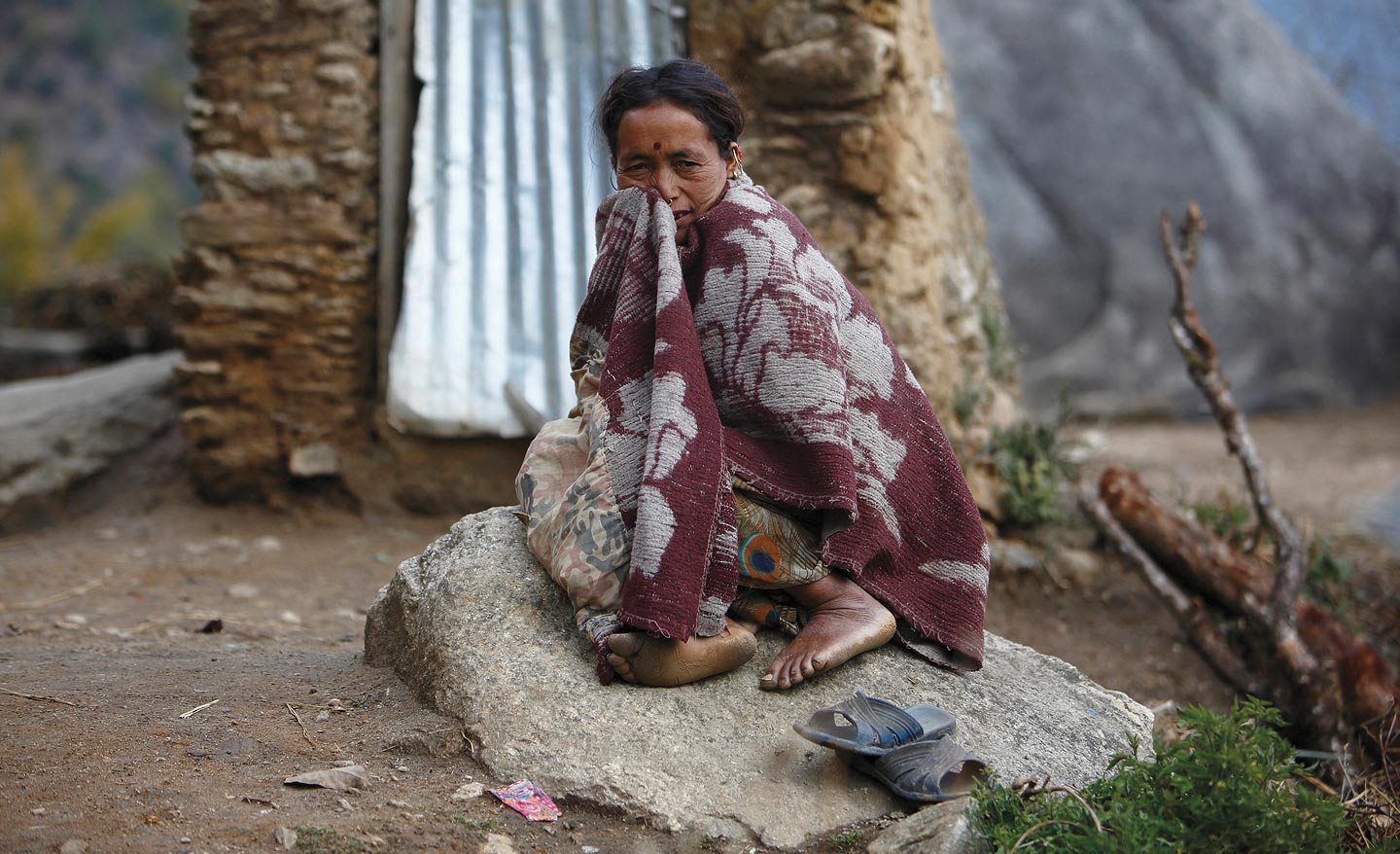Chhaupadi
Davis Projects for Peace grant winner Amiansu Khanal ’20 is working to end the practice of chhaupadi in Nepal.
“You try to lock me up in huts, in barns, near animals. No more.”
This is the message teenage girlsin rural Nepal are now using to stand up to their families and break a deeply entrenched tradition of menstrual
exile, thanks to the work of Amiansu Khanal ’20.
With a $10,000 Davis Projects for Peace grant, Khanal spent the summer in Jumla and Palpa, Nepal, working to end chhaupadi, the practice of banishing girls and women to huts and cattle sheds during their periods.
“These women are not allowed to enter the house, the kitchen or even gain access to the bathroom,” Khanal said. “This practice not only disempowers women, but also puts their hygiene, and at times, their lives, in danger.”
Chhaupadi was outlawed by the Supreme Court of Nepal in 2005, and a 2017 law makes the practice punishable with a fine and up to three months in jail. Yet the tradition is still widely practiced in western Nepal.
Khanal, whose family is from Nepal and who speaks fluent Nepali, has seen the impact firsthand. She founded ShEmpowered to teach girls and women about their legal rights and dignified menstruation, to provide menstrual products to schools, and to partner with local law enforcement agencies to help end menstrual exile.
To reach as many girls as possible, Khanal traveled to regional high schools in two rural areas of western Nepal and taught classes on the science of menstruation, the proper use of sanitary products and the laws related to chhaupadi.
One of her last meetings was with representatives from the district police headquarters, who surprised her by promising to counsel parents on the legal ramifications of forcing their daughters to participate in chhaupadi, and to take legal action if the problem persisted. Still, police were skeptical that anyone would take them up on the offer.
“My favorite moment of the summer was the day I brought the affected girls to the police station, and they had a long conversation with the head policewoman. I remember a shy girl called Sushmita bursting into tears toward the end because she was overjoyed with the policewoman’s support,” Khanal remembered.
